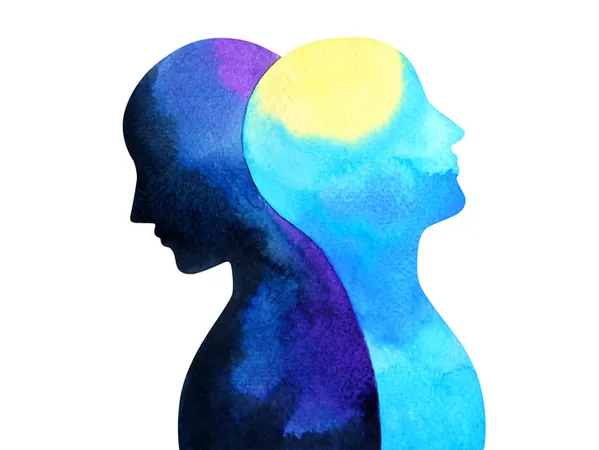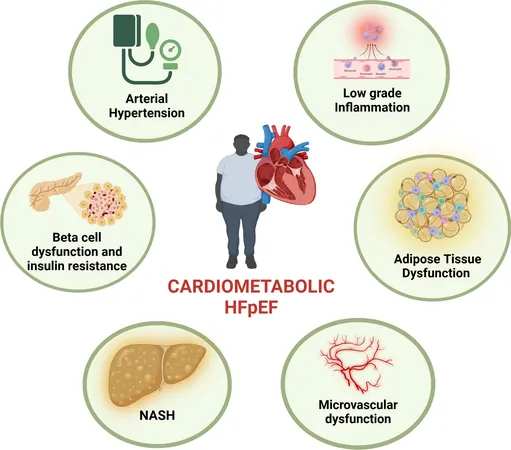
Unlocking the Future of Mental Healthcare: The Urgent Need for Precision and Personalization by 2025
2025-01-26
Author: John Tan
The United States is grappling with a mental health crisis that has been escalating for years, with recent statistics painting a troubling picture: a staggering 23% of adults reported experiencing a mental illness in the past year, up from 18% in 2008. This surge in mental health issues demands immediate attention and innovative solutions.
On a positive note, the stigma surrounding mental health is gradually fading, leading to an increase in individuals seeking help. Data reveals that the percentage of adults who received treatment rose from 19% in 2019 to 22% in 2023. Despite this progress, a shocking 60% of those with mental health conditions do not respond adequately to traditional treatments, underscoring a gaping hole in our current healthcare approach.
The clear message is that while patients are eager for assistance, our healthcare systems often fall short. A paradigm shift is essential. Psychiatry must abandon the outdated one-size-fits-all model and adopt a more nuanced strategy that incorporates precision and personalization.
Revolutionizing Treatment with Precision and Personalization
Depression, one of the most prevalent mental disorders in America, typically leads to standard prescriptions like selective serotonin reuptake inhibitors (SSRIs). Historically, physicians lacked the precise tools to assess how effective a specific antidepressant would be for an individual before prescribing it. Fortunately, recent advancements are changing that narrative. Today, healthcare providers can utilize state-of-the-art data-driven approaches to fine-tune treatments to individual needs.
For instance, measurement feedback technologies now allow doctors to track patients’ progress throughout their treatment journey. Research shows that employing these technologies can significantly enhance outcomes for individuals suffering from depression and anxiety.
Emerging artificial intelligence technologies hold even greater promise. These smart systems are designed to analyze both patient data and existing research, potentially guiding clinicians toward customized treatment plans based on a comprehensive understanding of clinical evidence.
Furthermore, identifying specific biomarkers associated with various mental health conditions is vital for developing precise, tailored treatments. Researchers have begun uncovering biomarkers linked to depression, such as neurotransmitters, hormones, and inflammatory substances. Innovative detection methods using aptasensors and electrochemical immunosensors are paving the way for advanced diagnostic techniques.
Expanding Options for Better Outcomes
The future of mental healthcare is not just about better diagnostics; it also involves refining treatment modalities. Current medication regimens may not be sufficient for many patients, leaving them frustrated and hopeless. Shockingly, nearly one in ten Americans aged 12 and older is on an antidepressant, yet rates of mental illness are still on the rise. It’s a stark reminder that we must explore alternative solutions diligently.
Innovations such as biofeedback, which teaches PTSD patients to recognize and regulate their physiological responses, offer exciting avenues for complementary therapies. Today’s technological advancements even include user-friendly apps that help individuals monitor their moods and select stress-management techniques tailored to their specific needs. The potential for personalized mental healthcare is vast, with numerous breakthroughs on the horizon.
The Path Forward
As we set our sights on 2025, it is crucial that the mental healthcare industry continues to evolve. Mental health professionals must stay informed about new technologies and treatment options to provide patients with the most effective care possible. This obligation goes beyond mere duty; it’s a commitment to fostering hope and healing in a landscape plagued by overwhelming challenges.
In conclusion, as we embrace an era of precision and personalization, we must strive to demystify mental health treatment, ensuring every individual receives a tailored approach that resonates with their unique experiences. Only then can we truly confront the mental health crisis and empower individuals to reclaim their lives with optimism and strength. The future of mental healthcare is not just about treatment; it's about transformation.




 Brasil (PT)
Brasil (PT)
 Canada (EN)
Canada (EN)
 Chile (ES)
Chile (ES)
 Česko (CS)
Česko (CS)
 대한민국 (KO)
대한민국 (KO)
 España (ES)
España (ES)
 France (FR)
France (FR)
 Hong Kong (EN)
Hong Kong (EN)
 Italia (IT)
Italia (IT)
 日本 (JA)
日本 (JA)
 Magyarország (HU)
Magyarország (HU)
 Norge (NO)
Norge (NO)
 Polska (PL)
Polska (PL)
 Schweiz (DE)
Schweiz (DE)
 Singapore (EN)
Singapore (EN)
 Sverige (SV)
Sverige (SV)
 Suomi (FI)
Suomi (FI)
 Türkiye (TR)
Türkiye (TR)
 الإمارات العربية المتحدة (AR)
الإمارات العربية المتحدة (AR)